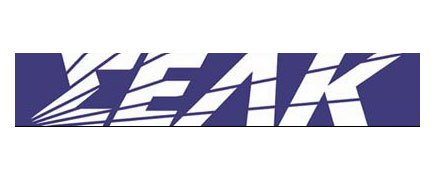A deal on global tax reform will be finalized ‘very soon,’ German finance minister says
July 13,2021
A deal on global tax reform will be finalized “very soon,” German Finance Minister Olaf Scholz told CNBC on Friday, adding he hopes the changes could come into force by 2023.
“We are now really on the road [to a deal],” Scholz told CNBC’s Annette Weisbach. “We will reach an agreement here at the G-20 when the 20 nations are agreeing on the same idea of having an international global minimum taxation.”
“This will be a process that will finish very soon,” he added.
Taxation is under the spotlight this weekend as finance ministers and central bankers of the 20 most advanced economies in the world are gathered in Venice, Italy. Their aim is to hammer out a deal that will force the biggest multinationals in the world to pay more taxes.
This comes after 130 countries and jurisdictions agreed last week to sign up for a global corporate minimum tax rate proposal that the G-7 presented in June.
Under the deal, multinationals could be forced to pay a minimum tax rate of 15% wherever they operate, rather than only paying the majority of duties in the nations where they have their headquarters. This has allowed corporate giants to shift profits to countries with very low tax rates or with other accounting incentives.A deal on global tax reform will be finalized “very soon,” German Finance Minister Olaf Scholz told CNBC on Friday, adding he hopes the changes could come into force by 2023.
“We are now really on the road [to a deal],” Scholz told CNBC’s Annette Weisbach. “We will reach an agreement here at the G-20 when the 20 nations are agreeing on the same idea of having an international global minimum taxation.”
“This will be a process that will finish very soon,” he added.
Taxation is under the spotlight this weekend as finance ministers and central bankers of the 20 most advanced economies in the world are gathered in Venice, Italy. Their aim is to hammer out a deal that will force the biggest multinationals in the world to pay more taxes.
This comes after 130 countries and jurisdictions agreed last week to sign up for a global corporate minimum tax rate proposal that the G-7 presented in June.
Under the deal, multinationals could be forced to pay a minimum tax rate of 15% wherever they operate, rather than only paying the majority of duties in the nations where they have their headquarters. This has allowed corporate giants to shift profits to countries with very low tax rates or with other accounting incentives.Another outstanding issue is the European Commission’s plan to introduce a digital levy in the near future.
When the G-7 agreed to a global corporate tax rate last month, it was also decided that taxes on digital services would come to an end to avoid double taxation. The executive arm of the EU — which has promised to find new revenue streams to pay for the debt incurred during the Covid crisis — is due to present a proposal for a new EU-wide digital levy.
The commission has said that this would be complementary to a global corporate tax rate, but the U.S. is worried the EU’s plans will derail progress.
Speaking to CNBC earlier this week, French Finance Minister Bruno Le Maire said that “I think there is a necessity to explain [to] the U.S. administration what is behind a digital levy,” adding that it “has nothing to do with taxation on digital giants.”



